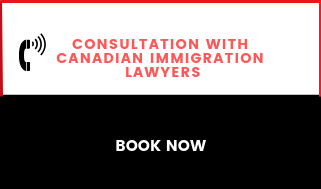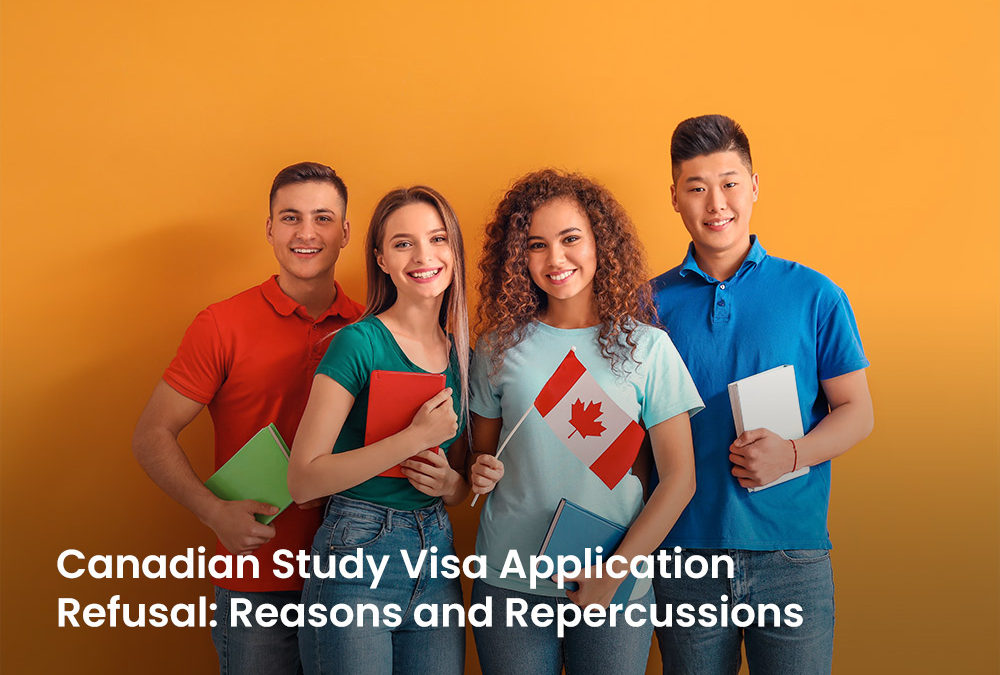
by Immilaw Team | Jul 11, 2022 | Canada Immigration, Study Abroad
When you have been refused a study permit, visitor visa, work permit, permanent residence, or any other type of application, you receive a refusal letter from IRCC with the officer’s reasons for refusal of the application.
The officer’s notes about the grounds for refusal highlight the problems in the application, which can help you understand why the application was refused and what changes can be made while re-applying.
Free Online Immigration Assessment
Study Permit Visa Refusal
Nearly all refusals for Canadian study permit applications are based on the provision under section 216 of the Immigration and Refugee Protection Regulations, which states as follows:
216 (1) Subject to subsections (2) and (3), an officer shall issue a study permit to a foreign national if it is ascertained, after an examination, that the foreign national (a) applied for it in accordance with this Part; (b) will depart Canada by the end of the period allowed for their stay under Division 2 of Part 9; (c) meets the requirements of this Part; (d) meets the requirements of subsections 30(2) and (3), if they are required to submit to a medical examination.
Study Permit Refusal: Reasons
1. Refusal based on the purpose of the visit
A study permit refusal based on the “purpose of your visit” is frequently related to the statement of purpose (also known as the study plan or SOP). For example, if the study plan was vague and general, this might lead to a refusal. On the other hand, if the visit’s purpose is unclear, the officer may believe that the applicant intends to enter the labor market in Canada and he is not a genuine student.
For instance, “I am not satisfied that you will leave Canada at the end of your stay, as stated in subsection 216(1) of the IRPR, based on the purpose of your visit.” This is a coded message that the officer does not believe the purpose of your study is genuine.
2. Financial Instability: Refusal based on personal assets and financial status of the applicant
Students applying for a study visa in Canada have to meet a minimum financial requirement to manage the expenses of the course. Therefore, one of the essential parts of the study permit application is showing financial ability to pay for your studies in Canada. If the applicant fails to submit enough documentation or does not submit enough information explaining where the finances have come from, the application is almost certainly going to be refused. Therefore, to reduce the chances of rejection, the applicant should attach valid financial proof to the application form.
3. Family Ties in Canada
Family Ties in Canada and country of residence is a widespread reasons for refusing a study permit or visa application. While applying for a study permit or temporary residence in Canada, the officer must be satisfied that you will leave Canada once your study permit expires. If you have family members who already live in Canada, the immigration officer will fail to believe that you will leave the country as you intend to live with your family. Also, if you do not have family in your country of residence, the officer will believe that you are less likely to return to your country of residence.
“I am not convinced that, based on your familial links in Canada and your country of residency, you will leave Canada at the end of your stay, as stated in paragraph 216(1) of the IRPR,” for example.
4. Lack of employment opportunities in the home country: Current employment situation
This reason for refusal comes up when the student applying for a study permit is mature or older to be in school or anyone who is going back to school after having been out of the institute for a long period. In such a situation, the immigration officer believes that you are expected to be working, and if you aren’t, then this can be a reason for the refusal of your application.
“I am not satisfied that you will leave Canada at the end of your stay, as specified in subsection 216(1) of the IRPR, based on your existing job status, ” for example.
5. Refusal based on Qualifications: Previous Studies, Academic Records, Lack of complete educational certificates, mark sheets, Language abilities
If you were an average or below average student or per your educational records, this could be used as around for refusal of the study permit application. Low marks or language scores can lead the officer to believe that you are not likely to succeed in any educational program in Canada, which defeats the purpose of approving your study permit and can lead to contravening the conditions of your entry to Canada.
6. Refusal Based on Travel History
When the applicant has never left their country of residence before and has never left their home country before, this can be used as a ground for refusal of the study permit or visa application. Even when there is a history that the applicant has overstayed on a visa in Canada or another country, this can be used as a reason for refusal.
“I am not satisfied that based on your travel history, you will leave Canada as stipulated in section 216(1) of the IRPR.”
7. Refusal Based on Lack of Study Plan
Without a detailed or concrete study plan, the officer will not grant the application for a study permit and will not be convinced the primary purpose of coming to Canada is to study. The choice of program applying for in Canada must make sense for the student as per his previous educational achievements or history. In addition, there must be a logical progression in the educational cycle; however, if the officer is not convinced about the study plan, the study permit will not be granted.
8. Refusal Based on Immigration Status in the Country of Residence
When the applicant is applying to come to Canada, they must have permission to be in the country where they are living at the time of applying. If the applicant applies to a country other than their nationality, they must submit proof that they can legally do so. If such evidence is unavailable, this can be the reason for the refusal of the study permit application.
“I am not satisfied that, based on your current job status, you will leave Canada at the end of your stay, as mentioned in subsection 216(1) of the IRPR,” for example.
9. Other Reasons for refusal that apply to all visitors in Canada
- Criminality- Having previous criminal charges.
- Misrepresentation-having misrepresented information to Canada Immigration previously and having received a ban.
- Previous Deportation- If the applicant has received a deportation order previously, a visa application will be refused for illegal visits or overstaying.
- Medical Inadmissibility- having a contagious disease that can cause a threat to the residents of the country, e.g. Covid patient
- Human Rights Violations- previously served in the military for a country that has been deemed to have participated in a war crime. Such individuals will be refused to enter Canada.
Contact Us
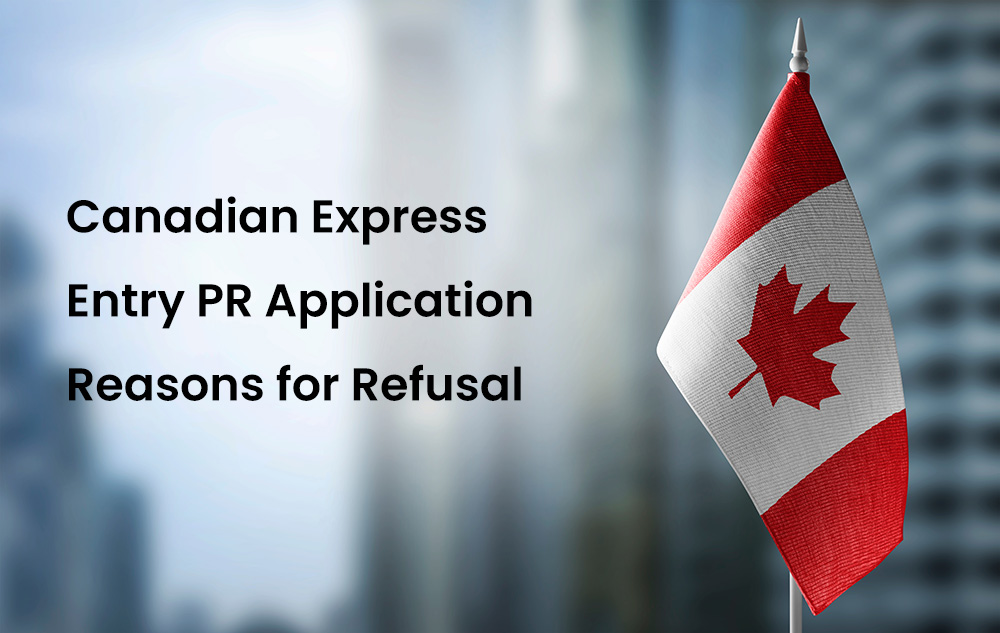
by Immilaw Team | Jul 5, 2022 | Canada Immigration
Express Entry
Express Entry is an online entry system that can be used to manage immigration applications from skilled workers.
Free Online Immigration Assessment
Generally, there are three immigration programs administered through Express Entry:
Express Entry
Canadian Experience Class
- any skilled professionals with previous work experience in Canada
- work experience must have been gained in the three years before you apply.
Canadian Experience Class
Federal Skilled Worker Program
- any skilled workers with foreign work experience
- must meet criteria for education and other factors
Federal Skilled Worker Program
Federal Skilled Trades Program
- for any skilled workers who are qualified in a skilled trade
- there must be a valid job offer or a certificate of qualification
Federal Skilled Trades Program
Any Express Entry Application, when refused, contains a letter of refusal that states:
Your application for permanent residency has been evaluated by Immigration, Refugees, and Citizenship Canada (IRCC). Unfortunately, your application does not meet the standards for a complete application as outlined in sections 10 and 12.01 of the Immigration and Refugee Protection Regulations. As a result, your application was refused because it was incomplete and not processed.
Such a letter is for the cancellation of the Express Entry application rather than the refusal. Such an application has not gone into processing yet. The application has been returned as all the required components for processing the application were not included, so it has been returned unprocessed. In such a situation, IRCC has determined that some of the required mandatory documents or information was not submitted.
When the application is put in the queue for processing, the immigration officer must determine:
- If the applicant meets the eligibility criteria of the program that they have applied for
- That the applicant had the necessary CRS points (Comprehensive Ranking System). To rank immigration candidates, the Canadian government developed a merit-based scoring system that assigns a score to each applicant in the Express Entry pool.
- The cancellation of a PR application is not the same as a rejection. When an applicant receives the information that their application has been canceled, they will lose their Invitation to Apply (ITA) and must create a new Express Entry profile and wait to receive a new ITA before submitting another application. The cancellation letter will state the reason why their application has been canceled as incomplete. The government fees will be reimbursed to the applicant within six weeks of receiving their cancellation letter.
Refusal of Express Entry Application
When an applicant receives a refusal letter, the letter will state why their application has been refused. On all future immigration applications, the applicant must declare that they have been denied the PR on previous occasions. Their fees will not be reimbursed as the fee is the amount charged for processing the application, even though it has been refused. However, they will be refunded the Right of Permanent Residence Fee within six weeks.
An application for Express Entry can be refused for many reasons:
1. The applicant fails to meet the essential requirement of the program they have applied for Canadian Experience Class (CEC), Federal Skilled Worker (FSW), Federal Skilled Trades (FST), Provincial Nominee Program (PNP)
2. The applicant did not have the required CRS score (Comprehensive Ranking Score) at the time they received their application
3. The applicant is inadmissible in Canada. People are not allowed to enter or stay in Canada because they have committed or been convicted of a crime. That crime could have taken place in or outside of Canada.
4. The applicant’s relative or any family member is not permitted to Canada.
Other Common Reasons for Refusal of Express Entry Application
Police Clearance Certificate
All applicants are supposed to submit a police certificate from the country where they currently reside. The police certificate must have been issued within six months from the date they submit their application. Applicants who reside in Canada and are submitting their application from Canada are not required to provide an RCMP Police certificate from Canada.
All applicants are required to provide a police certificate from every country where they have resided for six months in a row within the last ten years or since they turned 18. This certificate is applied only after leaving that country.
Applicants who apply for work permits, including the International Experience Canada Program (IEC), must provide a police certificate as part of their work permit application. However, when they apply for a PR after a year or two, they sometimes use the same credential they used for their work permit application, leading to the PR application’s cancellation. The reason is that the police certificate they used was issued while residing in that country rather than after they lived in their country of residence. Therefore, the police certificate will be valid if it was issued after the last time they lived in that country.
- If the Police Certificate is Scanned but submitted in Black and White: It is necessary to submit a scanned, coloured image of the original police certificate. The immigration officer may cancel the visa application if this requirement is not fulfilled.
- If the Police Clearance Certificate is Missing: All Express Entry applicants will need to upload the police certificate in case they have never left their home country for more than six months since the age of 18 years. In addition, the applicant must provide a police certificate for all the family members, spouse, and children 18 years or older.
- Failure to upload the correct police clearance certificate: IRCC has its specifications regarding the PCC required with the application. Some countries provide the certificate if a different format which is not accepted by the immigration officer leading to the refusal of the visa application.
Important Documents like Educational Credential (Degree, Certificate, Diploma) missing or not included in the application
The applicant must apply for an Education Credential Assessment (ECA) from one of the IRCC-approved ECA organizations. Once the assessment is done, the applicant can create or update their Express Entry profile. The applicant must provide the information stated on their ECA report and ECA report/ certificate number. It is a mandatory requirement to upload a scanned image of their degree, diploma, or certificate after submitting your application. If the application is submitted with the degree, diploma, or certification, it will cancel their PR application.
Non-inclusion of Primary Duties and Responsibilities in the Letter of Employment
The applicant must provide a letter of employment which must include the information regarding their employment period, job title, occupation, hours worked per week, salary obtained or hourly pay, and any benefits gained. This letter must be on the company letterhead and signed by the employer.
The IRCC officer will review each letter to help them determine whether the applicant has the necessary experience to meet the eligibility requirements of the program they are applying under and determine their CRS points.
The most crucial information in the letter is the primary duties and responsibilities of the position. These duties will help the officer determine whether the NOC the applicant has selected in their application is the correct code for the job and whether the occupation will fall under a skill type applied for by the applicant. If no duties and responsibilities are listed on the letter, the officer will refuse the application for the PR.
Statutory Declaration of Common-Law Union and proof of common-Law relationship
One of the common reasons for refusal of the Express Entry applications is that the applicant does not provide a signed IMM5409 Statutory Declaration of Common-law Union, or they do not include proof that they have resided with their common-law partner for one year or more. The applicant must also include evidence of their common-law relationship. In support of this, the applicant can submit documents such as-
- Both parties are included in the leasing agreement, which has been signed.
- Joint utility bills dated over one year ago from when you submitted your application. The document should contain both partner names and addresses.
- Joint bank account statements dated over one year ago from when you submitted your application. The document should contain both partner names and addresses.
If you fail to provide these documents, your application will be rejected. In addition, the applicants must complete the form and sign the form along with their common-law partner in the presence of a lawyer, notary public or commissioner of oaths.
Note: In addition to having lived together for at least a year, common-law couples also have to meet other requirements. Immigration agents examine the following factors to establish whether a common-law connection is genuine:
- is in a monogamous relationship with their partner
- is physically and emotionally reliant on each other
- participates in a shared social life
- is financially interdependent on one another, either through sharing expenses or providing financial assistance.
Expired Language Proficiency Test Results
When submitting your PR application, your approved language test results (IELTS or CELPIP) must be less than two years old. Since the test results are valid for 12 months, you should be sure that your results will be valid for the length of the profile’s potential time in the pool. Language test results used previously for your immigration or citizenship application do not expire for Canadian citizenship applications. English and French are the two national languages of Canada. When assessing CRS scores or applying for one of the federal immigration streams for Express Entry, there is no preference for English or French as the Official First Language. Regardless of language, all tests evaluate the same four skills: speaking, listening, reading, and writing. Also, you can only use the results from one test; you cannot combine the best results from different categories from different attempts at the test.
Refusal or cancellation of your application is highly demotivating and stressful. However, this can be avoidable by carefully following the instructions and making sure you submit a complete application. An experienced Immigration Lawyer can review your application today before submitting it to IRCC to ensure that it is done and that no problems lurking could lead to a refusal. This is necessary to ensure that you have met the program eligibility. This will also ensure that you have demonstrated that you have the necessary CRS score and that your documents meet the minimum requirement before they are uploaded or submitted for the PR.
Contact ImmiLaw Immigration today. We have a team of the best immigration lawyers in Canada to help and guide you throughout the immigration process.

by Immilaw Team | Jul 1, 2022 | Canada Immigration
Canada is creating a new immigration program for temporary residents, and changes to Express Entry are on the way.
Canada intends to develop a new fast-track immigration scheme for temporary foreign workers and international students. According to CBC News, Immigration Minister Sean Fraser said the new program would provide a permanent option for temporary residents. It will be similar to, but not identical to, the TR2PR program, which welcomed 90,000 vital workers and international student grads last year.
Fraser was responsible for expanding routes to Permanent Residence for international students and temporary foreign employees shortly after being appointed immigration minister. According to a vote passed in the Canadian House of Commons, Fraser now has 120 days to draught and publicize a strategy to attain these objectives.
Free Online Canadian Immigration Assessment
Changes to the Express Entry Procedure
Candidates from the Federal Skilled Worker Program (FSWP) and the Canadian Experience Class (CEC) can apply for permanent residency in Canada starting in July. Still, it won’t be the only change. Bill C-19 is now being debated in the Senate and is likely to pass soon. It will allow Immigration, Refugees & Citizenship Canada (IRCC) to accept Express Entry applicants into the pool for economic reasons such as occupation, French language skills, or educational credentials.
IRCC will be forced to engage in a public engagement process to help them decide which groups of Express Entry candidates would be invited to these types of lotteries. IRCC must also submit an annual report to Parliament explaining its activities.
IRCC will be forced to engage in a public consultation to help them decide which groups of Express Entry candidates will be invited. IRCC is also obligated to provide an annual report to the House of Commons outlining the economic goals pursued in each case.
Although it is not necessarily necessary to have resided in Canada to be eligible for an immigration visa, it is often the case. Studies have indicated that immigrants were having Canadian citizenship benefit from the immigration policy. First, those with more excellent experience get better earnings and have more job prospects than those who have never lived in Canada.
Express Entry
Temporary Resident in Canada
Many additional immigration programs are offered to Canadians with school and employment experience. To study in Canada, you must be accepted into a Designated Learning Institution (DLI) and obtain a study permit. In addition, you may be eligible for a Post-Graduation Job Permit (PGWP) if you finish an eight-month full-time program, which many people use to gain job experience in Canada.
Working in Canada typically entails obtaining a work visa. Work permits are divided into two categories: those issued under the Temporary Foreign Worker Program (TFWP) and those issued under the International Mobility Program (IMP). IMP work permits are designed to serve Canada’s economic, social, and cultural interests, whereas TFWP work permits require corporations to conduct a Labour Market Impact Assessment (LMIA). IMP work permits are excluded from the LMIA because the work undertaken by these permit holders has been proven to benefit Canada substantially or is the outcome of a reciprocal agreement with another country.
Visitors Visa
Migrate through Express Entry
Express Entry manages applications for the Federal Skilled Worker Program, the Canadian Experience Class, and the Federal Skilled Trades Program. To put it another way, to be considered for Express Entry, you must be eligible for at least one of these programs. In addition, express Entry is a way to get into the country quickly.
After being accepted into the pool, you’ll be given a score based on the IRCC’s Comprehensive Ranking System (CRS). The CRS considers your job experience in a skilled occupation, academic background, ability to speak in an official language, age, and other economic aspects. You are more likely to receive an Invitation to Apply (ITA) for permanent residence in Canada if you have more CRS points.
Candidates in the Express Entry pool may get an invitation to apply for a provincial nomination through the Provincial Nominee Program (PNP). If you accept the invitation and are nominated, you will receive 600 CRS points. This incentive guarantees that you will receive an ITA in the subsequent round of Express Entry. To apply for Express Entry immigration to Canada, you’ll need an ITA. After receiving your response to the ITA, the average response time for IRCC is six months. The pandemic, on the other hand, has slowed actual processing speeds. The current wait times can be found on the IRCC’s website.
Contact Us
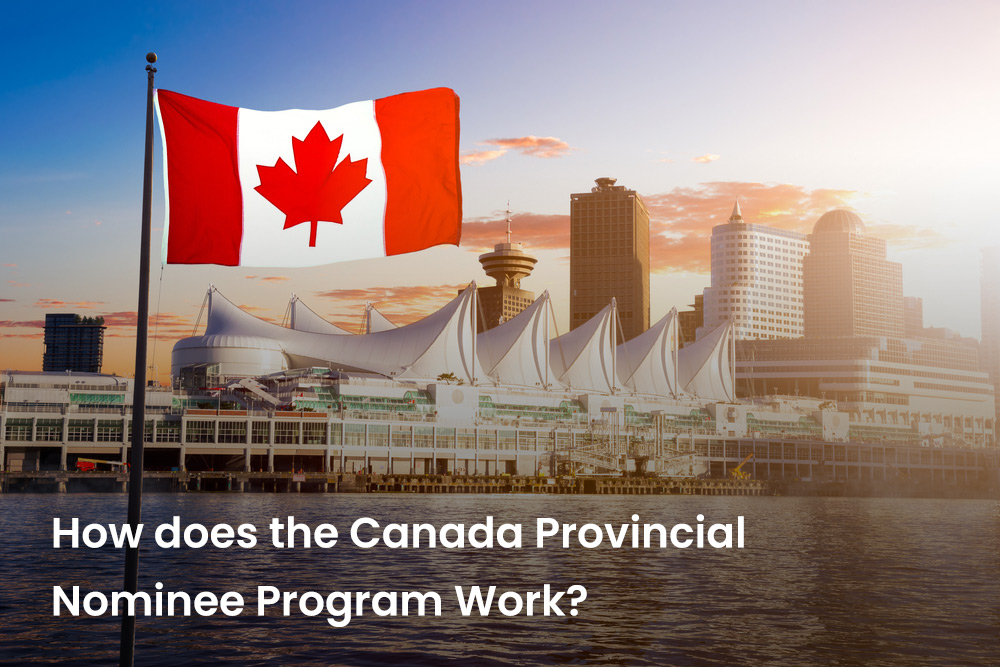
by Immilaw Team | Jun 30, 2022 | Canada Immigration
To distribute the advantages of immigration across Canada, the federal and provincial governments established the Canada Provincial Nominee Program (PNP) in 1998. Immigration, Refugees, and Citizenship Canada (IRCC) might be urged to provide permanent residence status to hand-picked candidates that the provinces believe will promote their economic growth.
According to the Canadian Constitution, the nation’s immigration policy administration is divided between the federal government and each province and territory. Therefore, the PNP’s primary goal is to disperse the advantages of immigration across Canada. Most immigrants to Canada settled in Ontario, Quebec, and British Columbia until the PNP was introduced in 1998. However, the Prairie provinces (Alberta, Saskatchewan, and Manitoba) and the Atlantic provinces (New Brunswick, Nova Scotia, Prince Edward Island, Newfoundland, and Labrador) have had tremendous success luring immigrants since 1998. As a result, there has been a wider distribution of immigrants across Canada.
Due to this, the Provincial Nominee Program (PNP) enables Canadian provinces and territories to nominate people who want to immigrate to Canada and are interested in relocating to a particular province.
Free Online Canadian Immigration Assessment
More than 80 PNP streams are designed to draw workers, graduates, and business owners. The PNP is available in every province and territory except Nunavut and Quebec (which run their economic-class programs), which offers the PNP. Each program is based on the province’s various labor force requirements.
Why is provincial nomination necessary for Canada?
Both the federal and provincial governments in Canada are accountable for immigration. However, the provinces did not exert much power over the majority of Canada’s history. As a result, most immigrants to Canada settled in Ontario, British Columbia, and Quebec.
Rural Canada, the prairie provinces, and Atlantic Canada did not gain from immigration. The PNP was established to give provinces and territories across Canada a tool to draw in and keep more immigrants. It has demonstrated its viability and will be Canada’s top economic class pathway in 2022 and 2023.
How Does It Function?
Nominations For The Base PNP Stream
Through a PNP, there are two ways to obtain permanent residency. The first method is through a base PNP stream. When a candidate applies straight to a PNP stream, this happens. Next, a letter of nomination will be issued to the applicant by the province after it has reviewed the application to ensure that it satisfies all requirements for the PNP stream. The next step is to apply for permanent residence at IRCC. According to IRCC, applicants for permanent residence who select a base PNP can anticipate a 27-month wait time for their applications.
Enhanced PNP Stream Nomination
A PNP-enhanced nomination is the second method for obtaining permanent residency. With the federal Express Entry application administration system, enhanced PNP streams are coordinated.
Candidates who meet the requirements for an Express Entry program, such as the Federal Skilled Workers Program (FSWP), Federal Skilled Trades Program (FSTP), or Canadian Experience Class (CEC), obtain an Invitation to Apply (ITA) by securing a provincial nomination.
Provincial governments can look at a candidate’s online Express Entry profile when they build one and determine whether or not they would be suitable for their region. Also, an applicant for Express Entry has the option to specify in their profiles whether they have a preferred province for relocation. As a result, a province could ask a candidate to apply for a provincial nomination by sending the candidate a notification of interest.
If a candidate is selected, they then apply to the province. They get a letter of nomination and automatically score 600 points in the Comprehensive Ranking System if they satisfy all the program requirements (CRS). This raises the likelihood of permanent residency guarantees an ITA from the IRCC. Express Entry applications must be processed within six months.
The PNP’s Advantages
Canada’s 80 PNP streams offer more options than ever to obtain permanent residency. The range of alternatives for candidates with different human capital qualities, such as age, education, language proficiency, or job experience, is made possible by the broad eligibility criteria. Research has also shown that the PNP supports immigrants’ economic integration.
The PNPs have shown to be an effective way of luring skilled employees to provinces like the prairies and the Atlantic, which historically do not have significant immigrant populations. Provinces can meet workforce shortfalls while providing skilled professions to immigrants by creating specialized provincial pathways, like the recently announced program for healthcare workers in Saskatchewan.
In addition, PNPs assist in addressing specific provincial labor market needs in sectors like technology and healthcare in larger provinces like Alberta, Ontario, and British Columbia, where immigration numbers are already high.
Contact Us

by Immilaw Team | Jun 18, 2022 | Canada Immigration
Spousal sponsorship is an essential aspect of the immigration system in Canada. You can sponsor your spouse, common-law partner, or conjugal partner to become a Canadian permanent resident if you are a Canadian citizen or permanent resident. In addition, a Canadian or permanent resident (the Sponsor) can sponsor their spouse or common-law partner (the sponsored person) for permanent residence in Canada under this scheme. Inland sponsorship is a type of spousal sponsorship offered to couples currently living together in Canada and whose spouse/common-law partner is in Canada on a transitory basis, such as a worker, student, or guest. The goal of completing an inland sponsorship application is to see if your spouse or partner qualifies for an open work permit.
Note: A work permit is a legal document that authorizes a foreign national to work in Canada. A foreign citizen with a valid open work permit is not restricted to working for a single employer and can work for various employers in multiple places across Canada.
Free Online Canadian Immigration Assessment
The following immigration programs are the most popular sources of open work permits:
1. Spousal Sponsorship (Inland) or Common-Law Sponsorship (Common-Law Sponsorship)
2. Permits to Work After Graduation (PGWP)
3. Canada’s International Experience (IEC)
4. Bridging the Gap with an Open Work Permit (BOWP)
Who is eligible to apply for an open work permit for their spouse?
- Spouses or common-law partners of work visa holders under the Atlantic Immigration Program (AIP).
- Quebec selection certificate (CSQ) holders’ spouses or common-law partners.
- Provincial nominees’ spouses or common-law partners.
- Bridging open work permit (BOWP) holders’ spouses or common-law partners.
- Study permit holders’ spouses or common-law partners.
- Recent Public Policy, dated April 7, 2022, for spouses or common-law partners of someone who sought PR in Canada.
- Spouses or common-law partners of non-BOWP open work permit holders.
A foreign national must have sought permanent residency sponsorship before applying for a spousal sponsorship open work permit. Inland spousal sponsorship allows candidates to stay in Canada while their permanent residence application is being processed.
A single hard copy envelope may be used to submit the sponsorship, permanent residency, and open work permit applications.
Holders of spouses with open work permits are free to work wherever they like.
Sponsering Spouse
Open Work Permit Criteria for Spouses
- Under the Spousal/ Common-Law Partner Sponsorship Immigration Program, an application for permanent residence must be submitted. Both the applicant and the Sponsor must meet all of the qualifying conditions for spousal or common-law partner sponsorship.
- The applicant must be a visitor, student, or worker having a valid temporary resident status.
- The applicant and the Sponsor must meet all of Immigration, Refugees, and Citizenship Canada’s eligibility standards (IRCC).
- (IRCC) seeks to process Spousal Sponsorship applications within 12 months.
- With certain limits, a spousal open work permit permits the spouse of a temporary Canadian permit holder to work anywhere in Canada for any employer.
- The citizen with an acceptable legal status.
- According to Canadian law, you are not criminally or medically inadmissible.
What is the duration of a spouse’s open work permit?
The work permit will be issued or extended until the PR application procedure is completed for Spousal Sponsorship Open Work Permit.
What are the prerequisites for applying for a Spousal Open Work Permit?
1. The applicant must be genuinely related to, or in connection with, the principal applicant, permanent resident, or citizen. Because the spousal open work visa is dependent on your relationship with your husband or common-law partner, providing appropriate documentation of your actual relationship is critical.
2. To apply for a spousal open work permit, your spouse must be a Canadian citizen with an acceptable legal status.
3. Canadian law states you are not criminally or medically inadmissible.
4. It is possible to apply for both an open work visa and sponsorship simultaneously.
5. They can apply for an open work visa online once IRCC has approved their sponsorship application.
Important information: Giving incorrect or misleading information on these forms is a serious violation. Verification of the information you submit on your application is required.
Before paying your fees, double-check that you are eligible and have provided all the needed information.
Contact Us
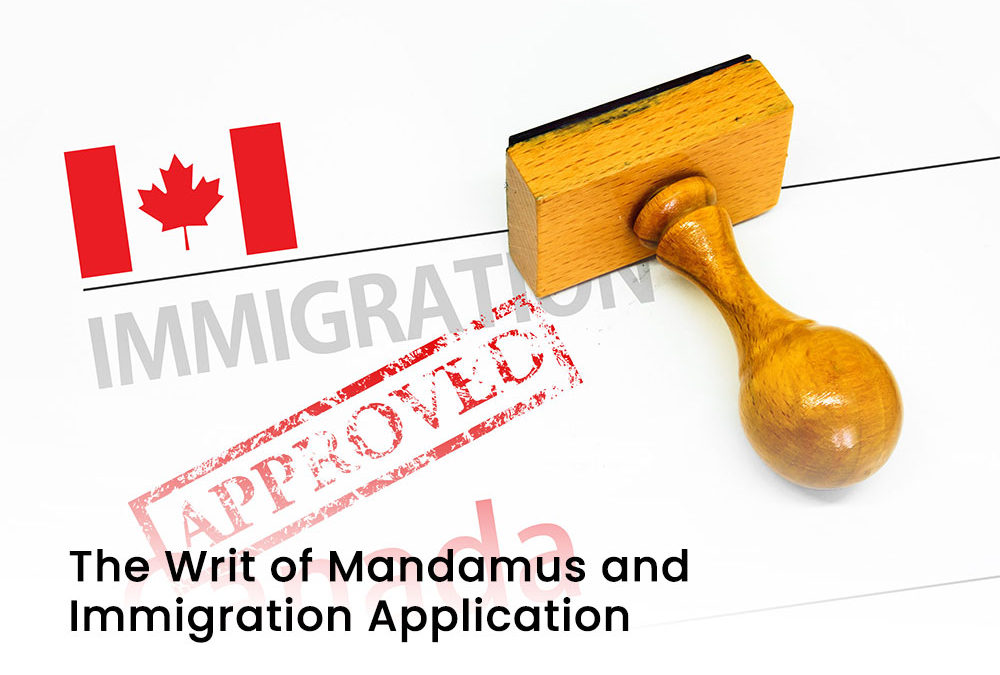
by Immilaw Team | May 9, 2022 | Canada Immigration
When you’re waiting for an immigration application to be processed, time flies (Tempus fugit), or it ticks by extremely slowly. This is why understanding the rights you are entitled to and demanding they be enforced is needed. It isn’t unheard of for the immigration regime in Canada and its agencies, such as the Immigration, Refugees and Citizenship Canada (IRCC), to take time processing applications. Some tend to take longer than others. Due to complicating factors, complex cases, and other external factors beyond control, such as the COVID-19 pandemic, cases might not get the attention they deserve. Ex nihilo nihil fit is a popular Latin saying, “nothing comes from nothing.” So, if you want the desired results, a little extra push is needed to ensure your application reaches the finish line.
If your immigration application is pending with the IRCC and you believe it’s taking longer than usual, you have a judicial remedy at your disposal. This remedy is known as the writ of mandamus.
Free Online Canadian Immigration Assessment
What Is a Writ of Mandamus?
The writ of mandamus originated from ancient English law, wherein the royals issued it as official commands. In Latin, it translates to “We command.” These official commands essentially laid out the specific acts the subjects had to undertake within their expected duty, wherein their failure not to do so resulted in adverse effects. From a legal perspective, a writ of mandamus is issued by a superior court to a lower one, a public authority, or a government officer to carry out duties they are obligated to perform by law.
How Is It Relevant in Context to Immigration Applications?
A writ of mandamus is essentially used to compel the IRCC to decide on pending immigration applications. Regardless of whether it is a temporary or permanent residence visa application, this remedy can be used. Similarly, it is also a helpful remedy in matters of any delay in application processing associated with a temporary residence, such as a study or a work permit. It can also be used for applications including and not limited to matters related to citizenship, temporary residence, temporary resident permit, and criminal rehabilitation.
Instead of opting for a specific case inquiry and completing the IRCC to process the application, the writ of mandamus is a better means. The IRCC is constantly receiving a flux of case-specific inquiries. Most of them are unfortunately left unaddressed. This means most applicants are left waiting for answers which worsen the already stress-inducing delay they are dealing with. Seeking this writ at the Federal Court forces the IRCC for a prompt response.
You need not worry about any adverse actions by the IRCC upon filing this writ application with the Federal Court. It will in no way affect or hamper your immigration application processing. The rule of law is of fundamental importance in Canada. This remedy is accessible to any applicant who believes the processing of their immigration application is subjected to unreasonable delay.
Am I Eligible for This Remedy?
A few basic and specific legal requirements must be met before a court can issue a writ of mandamus. The Canadian Bar Association provides a detailed guideline about this. The primary condition determining whether you can obtain a writ of mandamus is the processing time involved. If the average processing time of an application is exceeded and the delay is unreasonable, you are eligible for using this remedy.
Awaiting the decision about your immigration application can be a source of acute anxiety and stress because it determines your future. Some delays can be unreasonable, which is an effective tool to fix this situation. However, one thing that has to be done is to ensure a reasonable amount of time for processing the application has passed, and it is beyond the average. You can check this by visiting the Canadian government’s official website.
Usually, the processing time varies from a couple of weeks to a year depending on the complexity and nature of the application. It can feel like a long-drawn-out process, and some delays are unacceptable even with the ongoing pandemic. Ensure that your immigration application is completed correctly and there are no apparent reasons why the IRCC has held it. After this, you can seek a writ of mandamus.
A wonderful thing about this remedy is anyone can seek it. It means that even those outside of Canada are eligible for this. This remedy is available for applicants who have submitted and correctly filled their immigration applications to the IRCC. Your residence or location is irrelevant when the application is filed, or the federal court considers the matter.
How Do I Apply?
All mandamus applications for immigration-related purposes are filed with the Federal Court. It starts with a persuasive yet well-presented demand letter encouraging the IRCC to investigate why an application has not been processed yet. The actual process of this writ application is based on the conventional judicial review process. The three parts of it involve filing and issuance as well as the service of the Application for Leave and Judicial Review based on a request of mandamus. The key facts associated with your case and the relief you seek will be included in the Application for Leave and Judicial Review. The prima facie case for a mandamus order must be fulfilled, while the facts must be presented briefly, clearly, and persuasively.
The COVID-19 pandemic has resulted in the disruption of specific processes. However, this step is sufficient to push the IRCC to continue or complete the processing within 30-60 days of filing. Hiring the services of an experienced Canadian immigration lawyer is the first step toward this goal.
Contact Us







